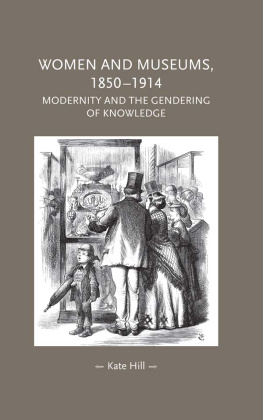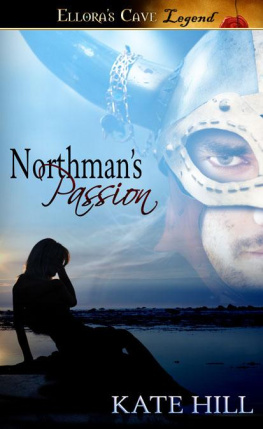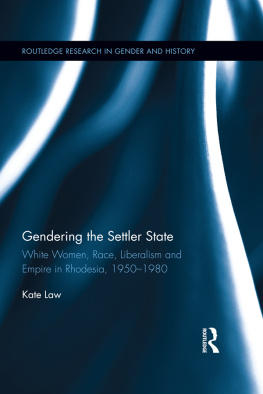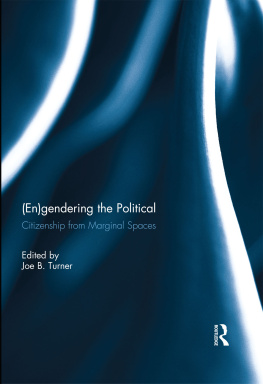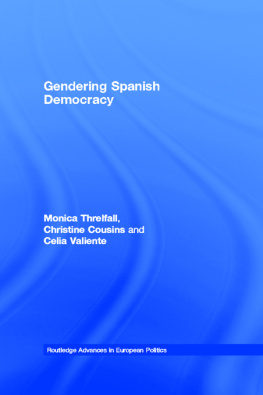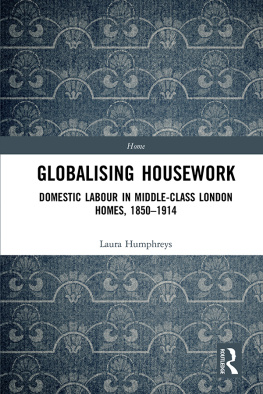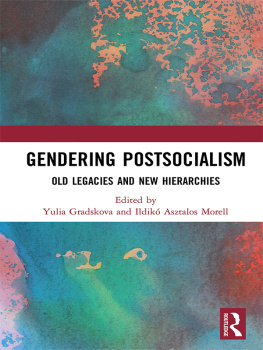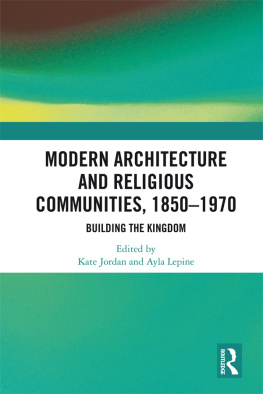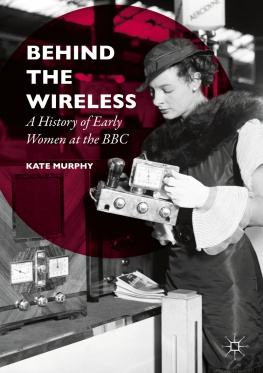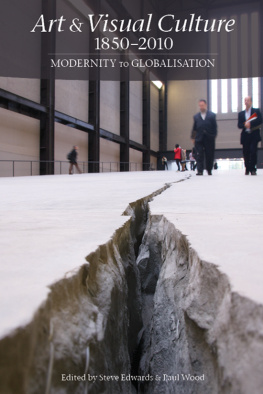GENDER IN HISTORY
Series editors:
Lynn Abrams, Cordelia Beattie, Pam Sharpe and Penny Summerfield
The expansion of research into the history of women and gender since the 1970s has changed the face of history. Using the insights of feminist theory and of historians of women, gender historians have explored the configuration in the past of gender identities and relations between the sexes. They have also investigated the history of sexuality and family relations, and analysed ideas and ideals of masculinity and femininity. Yet gender history has not abandoned the original, inspirational project of womens history: to recover and reveal the lived experience of women in the past and the present.
The series Gender in History provides a forum for these developments. Its historical coverage extends from the medieval to the modern periods, and its geographical scope encompasses not only Europe and North America but all corners of the globe. The series aims to investigate the social and cultural constructions of gender in historical sources, as well as the gendering of historical discourse itself. It embraces both detailed case studies of specific regions or periods, and broader treatments of major themes. Gender in History titles are designed to meet the needs of both scholars and students working in this dynamic area of historical research.
Women and museums, 18501914
OTHER RECENT BOOKS
IN THE SERIES

Love, intimacy and power: marriage and patriarchy in Scotland, 16501850 Katie Barclay (Winner of the 2012 Womens History Network Book Prize)
Modern women on trial: sexual transgression in the age of the flapper Lucy Bland
The Womens Liberation Movement in Scotland Sarah Browne
Modern motherhood: women and family in England, c. 19452000 Angela Davis
Gender, rhetoric and regulation: womens work in the civil service and the London County Council, 190055 Helen Glew
Jewish women in Europe in the Middle Ages: a quiet revolution Simha Goldin
Women of letters: gender, writing and the life of the mind in early modern England Leonie Hannan
The shadow of marriage:singleness in England, 191460 Katherine Holden
Women, dowries and agency: marriage in fifteenth-century Valencia Dana Wessell Lightfoot
Women, travel and identity:journeys by rail and sea, 18701940 Emma Robinson-Tomsett
Imagining Caribbean womanhood: race, nation and beauty contests, 192970 Rochelle Rowe
Infidel feminism: secularism, religion and womens emancipation, England 18301914 Laura Schwartz
Women, credit and debt in early modern Scotland Cathryn Spence
Being boys: working-class masculinities and leisure Melanie Tebbutt
Queen and country: same sex desire in the British Armed Forces, 193945 Emma Vickers
The perpetual fair: gender, disorder and urban amusement in eighteenth-century London Anne Wohlcke
Women and museums, 18501914
Modernity and the gendering of knowledge

Kate Hill

Manchester University Press
Copyright Kate Hill 2016
The right of Kate Hill to be identified as the author of this work has been asserted by her in accordance with the Copyright, Designs and Patents Act 1988.
Published by Manchester University Press
Altrincham Street, Manchester M1 7JA
www.manchesteruniversitypress.co.uk
British Library Cataloguing-in-Publication Data
A catalogue record for this book is available from the British Library
Library of Congress Cataloging-in-Publication Data applied for
ISBN 978 0 7190 8115 6 hardback
First published 2016
The publisher has no responsibility for the persistence or accuracy of URLs for any external or third-party internet websites referred to in this book, and does not guarantee that any content on such websites is, or will remain, accurate or appropriate.
Typeset by Out of House Publishing
For my mother and in memory of my father
Contents
I would like to thank many individuals and institutions who have helped throughout the gestation and birth of this book. First of all, I am grateful to the British Academy for funding the initial research project; and would like to record the very generous support of the University of Lincoln whose Lincoln School of Humanities research leave scheme gave me invaluable time for writing the book.
Bridget Yates made many helpful suggestions and made me aware of Sussex Archaeological Society Museum and of Gertrude Jekylls Surrey collections. Sally Ackroyd, Alex Woodall and the Manchester Art Gallery transcribed and let me see the correspondence of Mary Greg.
I am grateful to the museums who gave me access to their records: Birmingham Museum and Art Gallery, Brighton Museum and Art Gallery, Bristol Museum and Art Gallery, the British Museum, Cheltenham Museum and Art Gallery, the Egypt Exploration Society, the Horniman Museum, Ipswich Museum, Leicester New Walk Museum, Manchester Museum, Museums Sheffield, Norwich Castle Museum, the Petrie Museum at University College London, Sunderland Museum and Art Gallery, Warrington Museum and Art Gallery, and Whitby Museum. In particular, the following individuals helpfully guided me through the records and documents of their respective institutions: Sam Alberti at Manchester; Joan Lyall at Ipswich Museum; Tony Irwin at Norwich Castle Museum; Mark Edwards at Whitby Museum; Helen Brown and Ann-Rachael Harwood at Cheltenham Museum; Stella Beddoe and Helen Mears at Brighton Museum and Art Gallery; Alex Corney at the Geffrye Museum; Fiona Kerlogue at the Horniman Museum; Gareth Salway at Bristol Museum; Tessa Sidey at Birmingham Museum and Art Gallery; Mary Hider at Leicester Museum; Craig Sherwood at Warrington Museum; Helen Poole at Sussex Archaeological Society; Martin Routledge at Sunderland Museum; Alistair Maclean and Louise Pullen at Museums Sheffield, Alice Stephenson at the Petrie Museum, Joanna Kyffin at the Egypt Exploration Society, Bryony Millan at the National Portrait Gallery, and Wendy Brown and Imogen Gunn at the Museum of Archaeology and Anthropology, University of Cambridge.
I am hugely indebted to colleagues who generously read and commented on chapters and drafts: Sam Alberti, Jim Cheshire, Arthur MacGregor. Many colleagues from the School of Humanities and then the School of History and Heritage at the University of Lincoln gave coffee, moral support and encouragement; particular thanks go to Krista Cowman who helped enormously with the formulation of the initial research project and shared her expertise on the womens movement with me.
Versions of some of the material included here appeared in other publications: Collecting authenticity: domestic, familial, and everyday old things in English museums, 18501939, Museum History Journal 4 (2), 2011; He knows me but not at the Museum: Women, natural history collecting and museums, 18801914, in S. Dudley et al. (eds), Narrating Objects, Collecting Stories (London: Routledge 2012); Collecting and the body in late Victorian and Edwardian museums, in K. Boehm (ed.),



 Kate Hill
Kate Hill 

